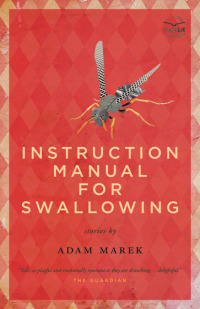August is a Wicked Month by Edna O'Brien
 Monday, April 9, 2012 at 10:29AM
Monday, April 9, 2012 at 10:29AM 
First published in 1965; published in digital format by Open Road Media on April 3, 2012
Ellen Sage (an Irish woman living in London) has been separated from George for two years. Their son shuttles between their homes. George is taking their son on a camping trip. Although Ellen turns down George's invitation to accompany them because there will be "nothing to fill the hours of treachery between them," she is having difficulty adjusting to life without him. A week later a man shows up at Ellen's door complaining about his mistress. Although Ellen has met the man only once, they spend the day (and then the night) together. As she longs for him in the ensuing days, she thinks it was wicked of him "to renew her life for an evening when she had resigned herself to being almost dead." In a desperate mood, Ellen buys "freedom clothes" and travels to France in search of men who will provide temporary respites from her frustration. Despite her "humiliation in the presence of perfectly formed people" and her indifference to the Mediterranean's beauty, she soon finds herself in the company of an American actor and his entourage. The story takes off from there.
August is a Wicked Month provides an insightful look at a woman who is learning (or relearning) how to live her life. Cycling between ecstasy and joylessness, Ellen struggles to reclaim a sense of purpose, of dignity and freedom. It is a cliché to say that she is finding herself but Ellen is clearly on a quest for self-discovery. Of course, at the end of such journeys we don't always like what we discover.
To a surprising extent, Ellen is sexually adventurous (surprising only because this 1965 novel takes place at a time when attitudes about casual sex were still evolving, when -- as Ellen notes -- female chastity was still the ideal), perhaps because she feels a need for the intimacy that disappeared from her life even before her separation. To her dismay, her adventures are mostly flops. When Ellen proclaims August to be "the wicked month," she is being ironic, "thinking of her own pathetic struggles toward wickedness."
"Sage means wise or something like that" Ellen says of her name, and while it's true that Ellen gains some wisdom during the month of August, her insights are not entirely positive. They are, in fact, rather depressing, although Ellen does learn (in a painful way) to see beyond her illusions. Readers who like sunshiny stories with happy endings should avoid this novel. A tragic (perhaps wicked in a different sense) event toward the end of the novel forces a further reassessment of Ellen's life. Although that aspect of the novel veers toward strangeness, it also acts as a reminder that people grieve and heal in different ways. At the very least, it feels authentic; Ellen is an odd but entirely believable person.
Edna O'Brien's prose ranges from light and melodic to dark and dense. She shapes sentences that are unusual but memorable. On several occasions the narrative jumps to a different place or time without making an obvious transition, a jarring technique that causes unnecessary confusion. In most other respects, I admired O'Brien's writing style. O'Brien provides enough detail to establish the scene and flesh out the characters but exercises enough restraint to avoid stating the obvious. The characters are both funny and sad, the story both amusing and disheartening. In that regard, the story reflects the joy and pain of life as focused through a lens that spotlights a lonely woman cast adrift. It isn't always easy to read a story like that, but August is a Wicked Month ultimately rewards the effort.
RECOMMENDED



